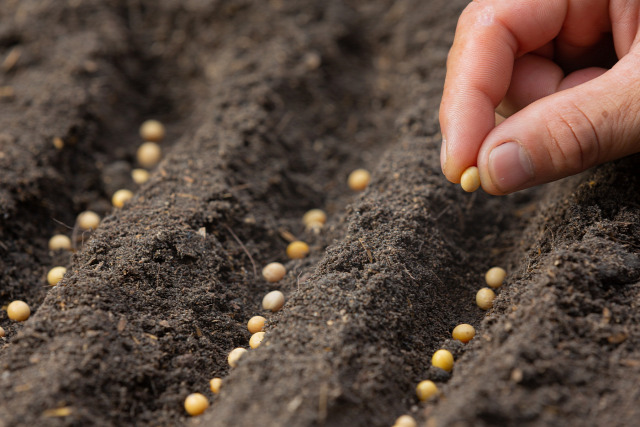
Seed Coating, a technique used in agriculture to enhance the performance and appearance of seeds, has emerged as a crucial component of modern farming practices. By applying coatings of various materials such as polymers, insecticides, fungicides, and nutrients to seeds, seed coating technology aims to improve seed germination, seedling vigor, and crop yield while reducing the need for chemical inputs and enhancing environmental sustainability. The global market of seed coating is witnessing robust growth as farmers and agricultural stakeholders recognize the benefits of seed coating in optimizing crop production and addressing challenges related to pest and disease management.
According to the BIS Research report, the Global Seed Coating Market is undergoing significant growth, propelled by key factors, and driving forces within the agriculture industry. Seed coating, involving the application of various materials like polymers, colorants, and nutrients to seeds, aims to improve their performance, protect against pests and diseases, and promote optimal germination.
The Significance of Seed Coating
Seed coating plays a vital role in modern agriculture by providing several key benefits:
Enhanced Seed Performance:
- Seed coatings protect seeds from environmental stresses.
- Improve germination rates and seedling establishment.
- Contain nutrients, growth promoters, stimulate root development.
Pest and Disease Management:
- Incorporate insecticides, fungicides for early-season protection.
- Minimize use of chemical sprays, reduce environmental exposure.
- Ensure effective pest management throughout the growing season.
Precision Application:
- Enables precise and uniform application of seed treatments.
- Optimal coverage and distribution of active ingredients.
- Reduces waste, chemical runoff, improves efficiency, cost savings.
Seed Coating Market Segmentation
Segmentation by Coating Type:
- Polymer Coatings
- Biological Coatings
- Chemical Coatings
Segmentation by Application Method:
- Film Coating
- Encrustment
Segmentation by Crop Type:
- Cereals and Grains
- Oilseeds and Pulses
Click to Preview the TOC of Global Seed Coating Market Research Report.
Regional Outlook
North America and Europe lead the market, driven by advanced agricultural practices, extensive research and development efforts, and supportive regulatory environments.
Asia-Pacific, Latin America, and Africa are experiencing rapid growth, fueled by increasing demand for high-yield crops, rising adoption of modern farming techniques, and investments in agricultural infrastructure and technology.
Future Challenges and Opportunities
While the global seed coating market presents significant opportunities for growth and innovation, several challenges must be addressed, including:
Regulatory Compliance: Regulatory requirements for seed coatings vary by region and may pose barriers to market entry and product registration. Compliance with pesticide regulations, environmental standards, and labeling requirements is essential for seed coating manufacturers to ensure product safety, efficacy, and market acceptance.
Cost Considerations: The cost of seed coating materials, application equipment, and seed treatment services may impact adoption rates, particularly among smallholder farmers and in developing regions. Cost-effective solutions, innovative financing models, and value-added services such as custom blending and precision application can help address cost barriers and increase market penetration.
Environmental Concerns: Concerns about the environmental impact of seed coatings, including polymer residues, pesticide runoff, and soil contamination, may influence consumer preferences and regulatory policies. Sustainable seed coating technologies, biodegradable materials, and eco-friendly formulations offer opportunities to address environmental concerns and promote sustainable agriculture practices.
Conclusion
The Global Seed Coating Industry is poised for significant growth as farmers and agricultural stakeholders recognize the benefits of seed coatings in improving seed performance, enhancing crop productivity, and reducing environmental impact. By leveraging advanced materials, technologies, and application methods, seed coating manufacturers can develop innovative solutions tailored to the needs of modern agriculture and contribute to sustainable food production and agricultural development worldwide.
As the demand for high-quality seeds and crop protection solutions continues to rise, stakeholders across the seed coating value chain must collaborate to overcome challenges, promote innovation, and unlock the full potential of seed coatings for a more resilient and sustainable future.

